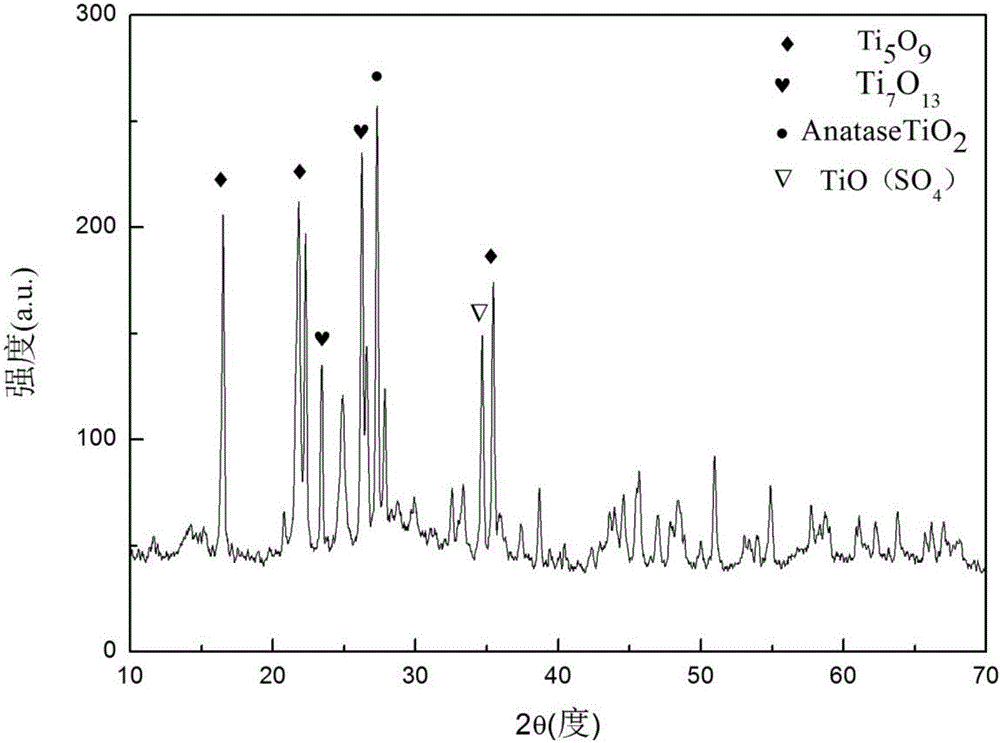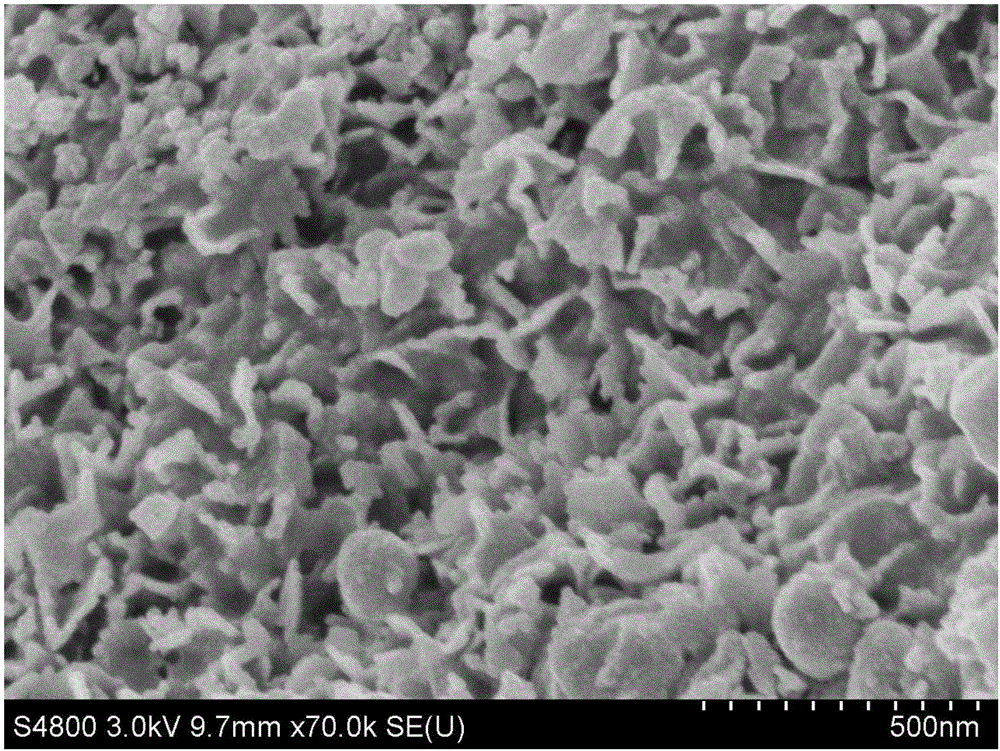Method for preparing sulfur-doped hypoxia type TiO2 photocatalyst
A photocatalyst and sulfur doping technology, applied in the field of photocatalytic materials
- Summary
- Abstract
- Description
- Claims
- Application Information
AI Technical Summary
Problems solved by technology
Method used
Image
Examples
preparation example Construction
[0034] A kind of sulfur-doped oxygen-deficient TiO 2 The preparation method of photocatalyst comprises the following steps:
[0035] (1) According to the fixed ratio of molar ratio n(Ti):n(Si)=1:2, Ti(SO 4 ) 2 and Na 2 SiO 3 9H 2 The amount of O, and then according to the molar ratio n(TiO 2 ): n(TiS 2 )=1:(0.03~0.1) ratio to determine Na 2 The amount of S and Ti(SO 4 ) 2 Supplementary dosage, thus determined Ti(SO 4 ) 2 total usage. Then based on the total molar amount of Ti and the molar ratio n(Ti):n(SO 4 )=1:(0.02~0.06) to determine the doping (NH 4 ) 2 SO 4 the amount of introduction. Thereafter, the corresponding chemical reagents were weighed, and the Na 2 S, Ti(SO 4 ) 2 and (NH 4 ) 2 SO 4 dissolve into an aqueous solution;
[0036] (2) Na 2 SiO 3 9H 2 O Use deionized water to prepare an aqueous solution with a concentration of 0.60-0.65 mol / L, place it in a digitally controlled temperature-adjusted ultrasonic instrument, and first dissolve Ti(...
Embodiment 1
[0042] (1) According to the fixed ratio of molar ratio n(Ti):n(Si)=1:2, Ti(SO 4 ) 2 and Na 2 SiO 3 9H 2 The amount of O, and then according to the molar ratio n(TiO 2 ): n(TiS 2 ) = 1:0.06 ratio to determine Na 2 The amount of S and Ti(SO 4 ) 2 Supplementary dosage, thus determined Ti(SO 4 ) 2 total usage. Then based on the total molar amount of Ti and the molar ratio n(Ti):n(SO 4 )=1:0.04 to determine doping (NH 4 ) 2 SO 4 the amount of introduction. Thereafter, the corresponding chemical reagents were weighed, and the Na 2 S, Ti(SO 4 ) 2 and (NH 4 ) 2 SO 4 dissolve into an aqueous solution;
[0043] (2) Na 2 SiO 3 9H 2 O Use deionized water to prepare an aqueous solution with a concentration of 0.65 mol / L, place it in a digitally controlled temperature-adjusting ultrasonic instrument, and under the action of continuous stirring and ultrasonic waves at 50°C, Ti(SO 4 ) 2 Add the solution slowly, and continue adding Na slowly after 10 min 2 S solution...
Embodiment 2
[0050] (1) According to the fixed ratio of molar ratio n(Ti):n(Si)=1:2, Ti(SO 4 ) 2 and Na 2 SiO 3 9H 2 The amount of O, and then according to the molar ratio n(TiO 2 ): n(TiS 2 )=1:0.03 ratio to determine Na 2 The amount of S and Ti(SO 4 ) 2 Supplementary dosage, thus determined Ti(SO 4 ) 2 total usage. Then based on the total molar amount of Ti and the molar ratio n(Ti):n(SO 4 )=1:0.06 to determine doping (NH 4 ) 2 SO 4 the amount of introduction. Thereafter, the corresponding chemical reagents were weighed, and the Na 2 S, Ti(SO 4 ) 2 and (NH 4 ) 2 SO 4 dissolve into an aqueous solution;
[0051] (2) Na 2 SiO 3 9H 2 O Use deionized water to prepare an aqueous solution with a concentration of 0.60 mol / L, place it in a digitally controlled temperature-adjusted ultrasonic instrument, and firstly dissolve Ti(SO 4 ) 2 Add the solution slowly, and continue to add Na slowly after 5min 2 S solution. Continue ultrasonic stirring for 25 minutes to form a w...
PUM
| Property | Measurement | Unit |
|---|---|---|
| decomposition temperature | aaaaa | aaaaa |
| particle size | aaaaa | aaaaa |
Abstract
Description
Claims
Application Information
 Login to View More
Login to View More - R&D
- Intellectual Property
- Life Sciences
- Materials
- Tech Scout
- Unparalleled Data Quality
- Higher Quality Content
- 60% Fewer Hallucinations
Browse by: Latest US Patents, China's latest patents, Technical Efficacy Thesaurus, Application Domain, Technology Topic, Popular Technical Reports.
© 2025 PatSnap. All rights reserved.Legal|Privacy policy|Modern Slavery Act Transparency Statement|Sitemap|About US| Contact US: help@patsnap.com


